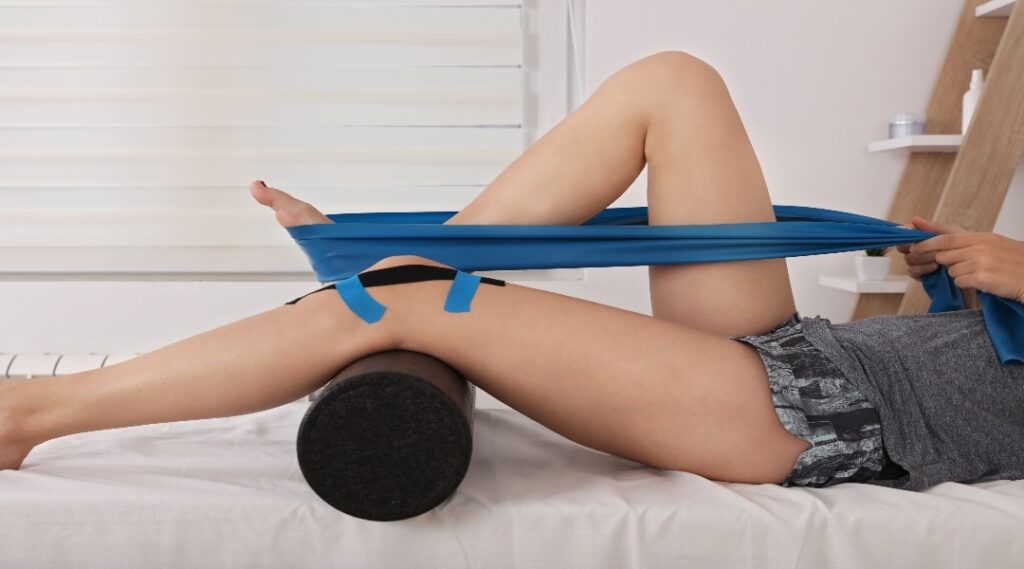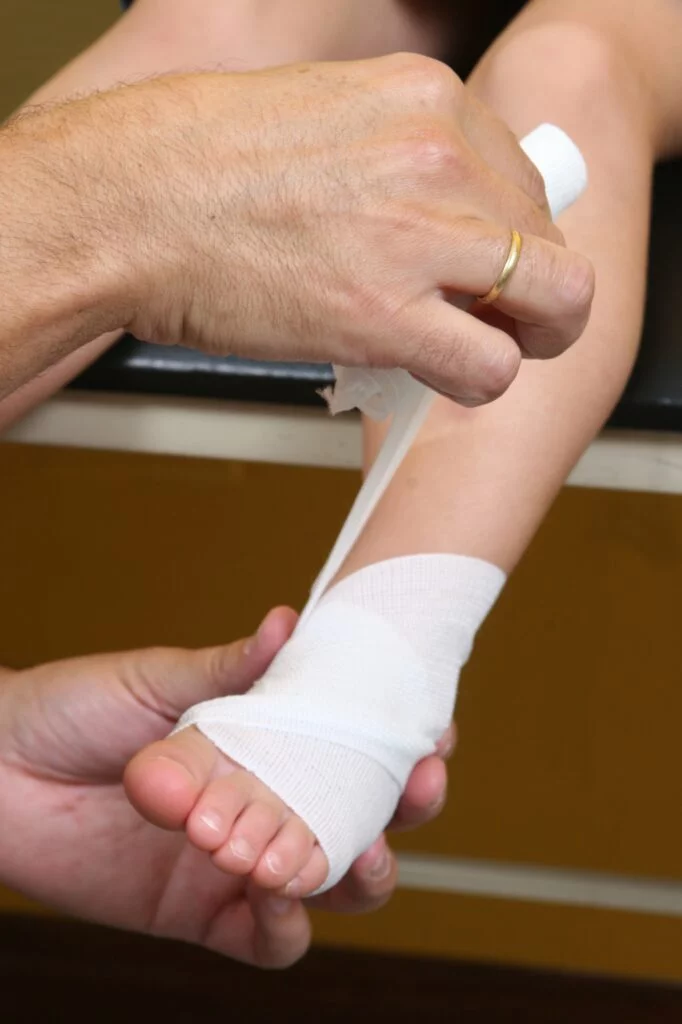Table of Contents
Introduction
Meniscus tears are among the most common kinds of knee injuries. Although not all meniscus tears are especially painful at the exact instant of the injury, the resulting swelling and inflammation that sets in following your activity will typically be much more severe.
If you’re starting to develop pain or stiffness in your knee, particularly after a twisting motion during activity, give us a call right away. Dr. Scott Fujii, our orthopedic specialist, has extensive experience treating meniscus tears in athletes and individuals of all ability levels.
What Is a Meniscus Tear?
A meniscus is a special, C-shaped piece of cartilage positioned between the thigh bone (femur) and shinbone (tibia) to provide cushioning and support. You actually have two of them in each knee, and they serve as crucial “shock absorbers” that prevent the bones from sustaining too much wear and tear.
Meniscus tears are common after a forceful, unexpected twisting motion. Playing contact sports, as well as those that require lots of starts, stops, or pivoting motions, significantly increases your risk of developing a meniscus tear.
In older, less active, or overweight adults, meniscus tears may also develop without a clear, obvious injury—perhaps from squatting, kneeling, or lifting something heavy. Degenerative changes due to age or wear and tear make the meniscus more vulnerable.

What Are the Common Signs of a Meniscus Tear?
Meniscus tear symptoms can vary depending on the severity of the injury. Some warning signs that may suggest a meniscus tear include:
- Knee pain, especially if you try to twist or rotate your knee.
- Swelling and stiffness in the knee.
- Difficulty straightening your leg fully.
- Instability or wobbliness in the knee.
You may have felt or even heard a “popping” sensation at the time of the injury as well.
What Should I Do If I Suspect a Meniscus Tear?
We strongly recommend you call our office if you sustain an injury to your knee that results in pain, stiffness, swelling, or inability to straighten or move the knee normally without discomfort.
Mild meniscus tears can sometimes be treated at home with rest. However, meniscus tears that do not receive proper treatment can easily worsen, increasing your risk of developing longer-term problems such as arthritis and chronic knee instability.
Treatment for Meniscus Tears
The best treatment protocol for a meniscus tear depends on many factors—including the location and severity of the tear, your health status, your activity goals, and more. Dr. Scott Fujii will conduct a thorough physical examination, including any diagnostic testing that may be necessary, in order to fully assess the situation and make treatment recommendations.
As with many other injuries, our goal is to treat your meniscus tear conservatively, if possible. If the tear is restricted to the outer portions of the meniscus, there’s a great chance that the tear will eventually heal on its own, provided you follow our treatment plan carefully. Tears that reach further into the center of the meniscus, where blood supply is not as robust, often require a surgical repair.
Conservative treatments may include:
- Avoiding activities that could further aggravate the tear. You will likely have to avoid impact exercises for a while. We may also provide you with crutches to help offload weight and pressure acting on the knee.
- Compressing/bracing the knee. This helps protect the knee and may reduce swelling.
- Stretching and strengthening exercises. It’s important to perform these steps carefully and slowly to avoid re-aggravating the injury. Follow your rehab plan closely.
- Pain management. Taking over-the-counter NSAIDs can often help with temporary pain. Cortisone injections, while useful for many other kinds of soft tissue injuries, typically do not help with meniscus tears.
If your meniscus is more severely damaged, arthroscopic surgery will likely be recommended to repair the torn meniscus (if possible), or trim away the damaged portion so it isn’t causing pain anymore. If there is already severe arthritis in the joint, a full knee replacement may be recommended instead.
Dr. Fujii will be sure to go over all your surgical and non-surgical options with you and answer any questions you have about any procedures he may recommend.

What Can I Expect After Surgery?
Recovery time varies depending on the type of procedure selected, as well as other factors (including your overall health). Recovery tends to be faster if only the damaged portions of the meniscus were trimmed (less than one month in some cases), and slower after a repair (around 3 months on average.) In both cases, procedures are typically performed outpatient at our office with no hospitalization required.
During your recovery, it will be important to take things slow for a while and fully rehab the knee before you attempt to return to your previous levels of activity. Doing too much, too soon can easily result in a new injury.
Short-term and medium-term results tend to be extremely good, and many if not most people who follow their treatment plans carefully will return to their pre-tear levels of activity and performance. Meniscus tears that were not surgically repairable do come with a greater risk of post-traumatic arthritis over the long term, however.
Comprehensive Care for Meniscus Tears
Dr. Scott Fujii is an orthopedic sports injury expert whose past patients have included athletes at the highest levels of competition. He understands how important it is to keep his patients active, and will use his training and experience to ensure you get the best possible treatment for your meniscus tear.
If you’re suffering from knee pain, don’t take the risk that things will get worse before they get better. Give us a call so we can help you eliminate your pain, heal your knee, and protect your long-term health! You can reach us at (916) 961-3434, or by clicking the Appointment button below.
Looking to schedule an appointment with a physician?
Schedule an appointment with us by calling (916) 961-3434 or by clicking the button below to begin requesting your appointment today!

